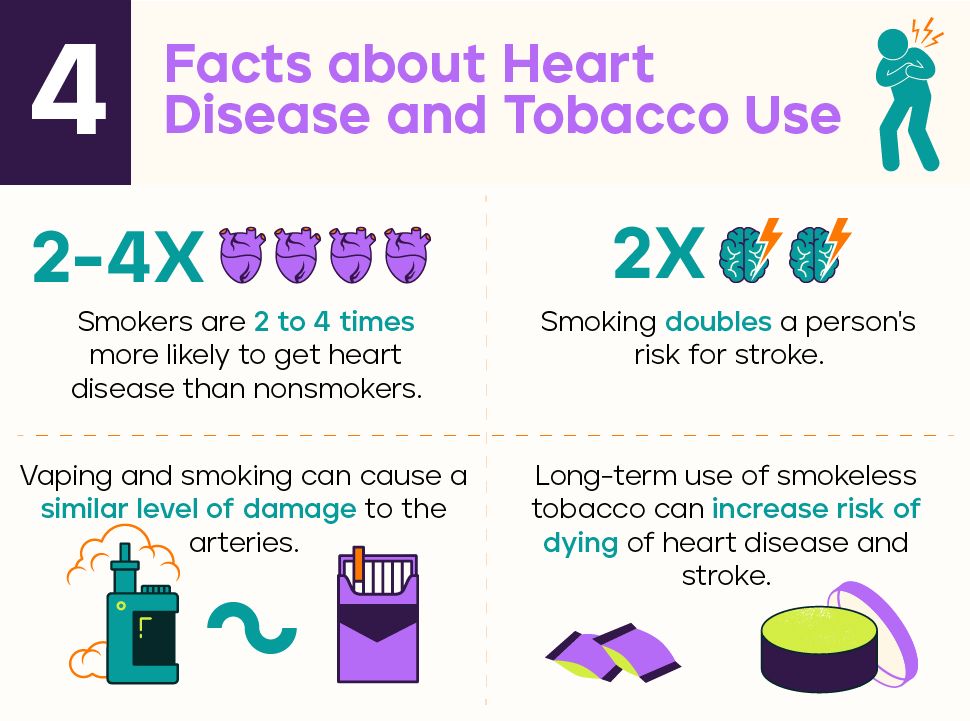Heart disease and smoking oftentimes go hand-in-hand.
Can smoking cause a heart attack?
Smoking is a leading cause of heart attacks and heart disease. Quitting smoking is the most important thing tobacco users can do to lower their chances of having a heart attack caused by blocked blood vessels.
Ongoing issues like heart disease can drive up healthcare utilization and costs.
But while digital condition-specific programs are trending now among employers and health plans, these efforts will have limited impact if tobacco cessation isn’t addressed, too.
Here are additional facts about the connection between heart disease and smoking you need to know.
How does smoking affect cardiovascular disease?
The combination of heart disease and tobacco brings increased risk of serious illness.
With cardiovascular disease, smoking makes the condition worse by putting carbon monoxide into the blood, causing less oxygen to reach the heart.
At the same time, smoking speeds up the heart rate, necessitating more oxygen. Over time, this ugly cycle can cause considerable strain on the heart, increasing the chances of heart attack and stroke.
Managing a chronic condition is difficult on its own, but when you add in smoking, that can compound health risks and negative outcomes.
Consider these common questions about smoking and heart disease:
Can smoking cause heart disease?
Smoking can increase the chance of heart disease. Smokers are 2 to 4 times more likely to get heart disease than nonsmokers.
Can smoking cause strokes?
Smoking is associated with a higher risk of stroke. In fact, smoking doubles a person’s risk for stroke because it can damage the circulatory system, for example, by hardening arteries.
Is vaping better for your heart than smoking?
Vaping and smoking can cause a similar level of damage to the arteries.
How does smokeless tobacco affect heart disease?
Long-term use of smokeless tobacco can increase risk of dying of heart disease and stroke.
EX Program offers tailored support for heart disease and smoking
With the complexity of chronic condition management comes the need for tailored solutions. Helping people quit means addressing more than their smoking or tobacco use behavior, it also means understanding their specific needs as someone who struggles with a chronic condition.
That’s why the EX Program offers text messaging support for those with cardiovascular disease to help them navigate through quitting in a way that’s meaningful, personalized, and effective. Text content is developed in collaboration with Mayo Clinic, and designed to engage these unique populations, with EX Coaches providing tips as well.
Plus, our active, online EX Community can provide peer support from other current and former smokers who are concerned about heart health.
Want to learn more? Visit our program page to learn about how to help more tobacco users quit for good.





